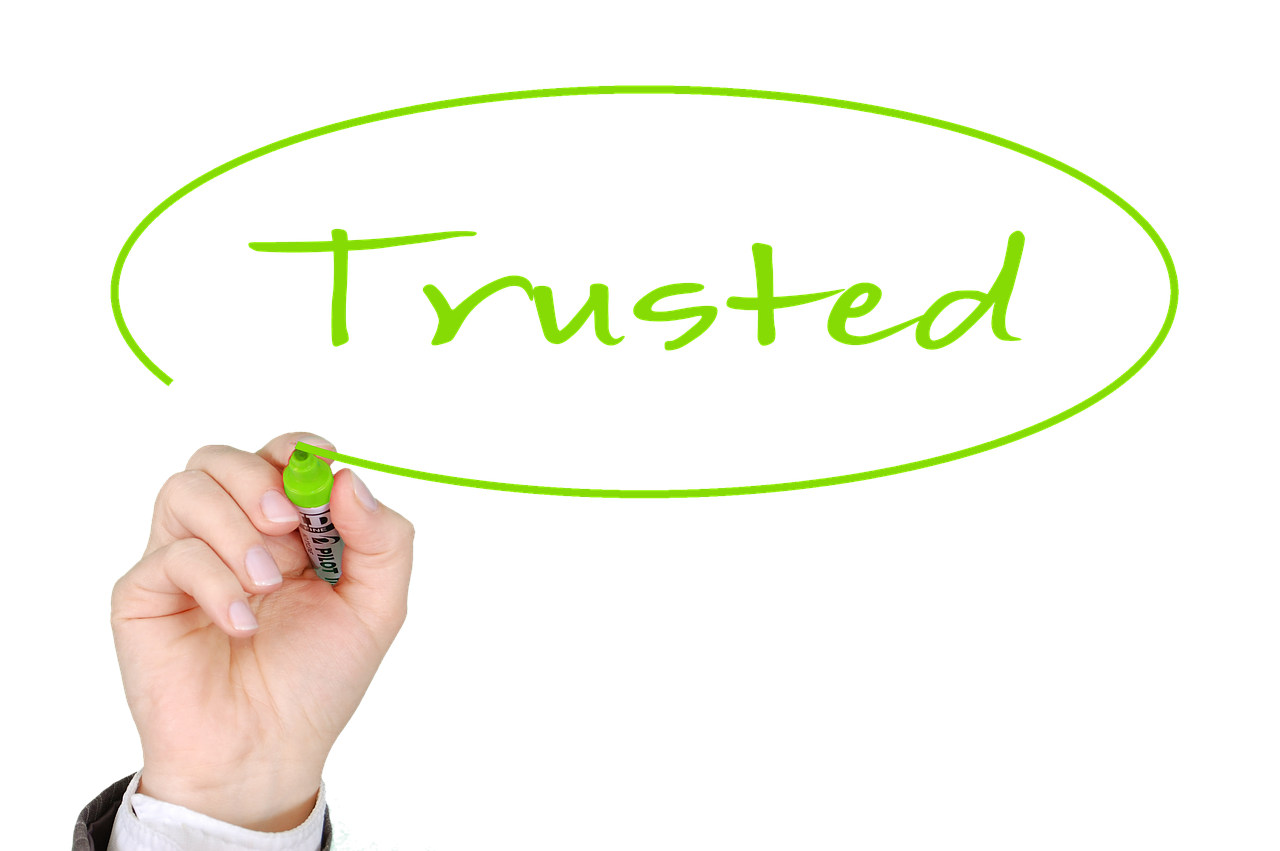There’s a lot that goes into making a company: a solid vision, a gifted group, and a product that customers and also investors can trust.
Each of these is essential to the success of the company. But the adhesive that holds it all together is trust. In the 2019 Edelman Depend On Measure Unique Report, respondents recognized trust as one of the most vital variables. This means they consider it before acquiring something. Eighty-one percent of respondents claimed they “must be able to trust the brand.”.
We have seen over and over terrible things that happen when a firm betrays the public’s trust– take Facebook, Uber, etc. As soon as trust is weakened, one of the most potent behemoths will struggle to recoup– as well as several never do.
Beyond the danger of irreparably harming your reputation, there’s also a massive financial influence. In 2018, the Economic expert researched eight of the largest recent company scandals and found out that the median company has been valued at 30 percent less than it would certainly have been otherwise.
Firms that have damaged trust have taught us that it can be broken in a split second, though it requires time to build it. Below’s how to see to it you never allow your stakeholders down.
1. Establishing Credibility
Showcase Your Expertise
To earn your client’s trust, you must first demonstrate your expertise in your field. Showcase your skills, knowledge, and experience through various channels such as a professional website, portfolio, and social media profiles. Highlight successful projects, client testimonials, and any relevant certifications or qualifications. By providing tangible evidence of your capabilities, you can reassure clients of your proficiency and competence.
Communicate Your Value Proposition
Clearly articulate the value you offer to your clients. Your value proposition should explain how your services can address their needs, solve their problems, or improve their situation. Be specific about the benefits clients will receive from working with you, and differentiate yourself from competitors. A well-defined value proposition helps clients understand why they should choose you and builds their confidence in your ability to deliver.
Be Transparent About Your Process
Transparency is key to building trust. Clearly outline your working process, including timelines, deliverables, and pricing. Provide clients with a detailed proposal or contract that specifies the scope of work and expectations. Being upfront about how you operate and what clients can expect helps prevent misunderstandings and fosters a sense of reliability and professionalism.
2. Effective Communication
Listen Actively
Effective communication is a two-way street. Active listening is crucial for understanding your clients’ needs, preferences, and concerns. Make an effort to listen attentively to their feedback, ask clarifying questions, and show empathy. Demonstrating that you value their input and are committed to addressing their needs fosters trust and strengthens your relationship.
Provide Regular Updates
Keep clients informed about the progress of their projects or services. Regular updates, even if brief, show that you are actively working on their behalf and help manage their expectations. Communicate any challenges or changes in a timely manner, and offer solutions or alternatives when necessary. Transparency in communication reinforces trust and demonstrates your commitment to delivering results.
Be Responsive and Accessible
Prompt responses to client inquiries and concerns are essential for maintaining trust. Ensure that you are easily accessible through various communication channels such as email, phone, or messaging platforms. Set clear expectations for response times and adhere to them. Being responsive and accessible shows that you prioritize your client’s needs and are dedicated to providing excellent service.
3. Delivering Exceptional Service
Exceed Expectations
One of the most effective ways to build and maintain client trust is by consistently exceeding their expectations. Go the extra mile to deliver high-quality work and provide exceptional service. Anticipate potential issues and address them proactively. By consistently delivering outstanding results and demonstrating a commitment to excellence, you reinforce clients’ trust in your abilities.
Maintain Consistency
Consistency is crucial for building trust. Ensure that your work quality, communication, and service level remain consistently high. Avoid any fluctuations in performance or reliability that could lead to doubts or dissatisfaction. Clients rely on consistency to feel secure in their decision to work with you, so maintaining a steady standard of excellence is essential.
Address Issues Promptly
Challenges and issues are inevitable in any business relationship. When they arise, address them promptly and professionally. Acknowledge any mistakes or shortcomings, and take responsibility for resolving them. Offer solutions or corrective actions to rectify the situation. Demonstrating accountability and a willingness to make things right reinforces trust and shows that you value the client relationship.
4. Building Long-Term Relationships
Foster Personal Connections
Building a personal connection with your clients can enhance trust and loyalty. Take the time to get to know them and understand their goals, preferences, and values. Personal interactions, such as occasional check-ins or personalized recommendations, help strengthen the relationship and make clients feel valued. A strong personal connection can lead to long-term partnerships and positive referrals.
Seek Feedback and Act on It
Regularly seek feedback from your clients to gauge their satisfaction and identify areas for improvement. Encourage honest input and use it constructively to enhance your services. Demonstrating that you value their feedback and are committed to making necessary changes shows that you prioritize their needs and are dedicated to continuous improvement.
Show Appreciation
Express gratitude for your client’s business and loyalty. Simple gestures such as thank-you notes, appreciation emails, or occasional tokens of appreciation can go a long way in reinforcing trust. Showing appreciation helps build a positive and respectful relationship, making clients feel valued and respected.
Conclusion
Gaining and maintaining client trust is essential for building a successful and sustainable business. By establishing credibility, communicating effectively, delivering exceptional service, and fostering long-term relationships, you can create a strong foundation of trust with your clients. Trust is not something that is earned overnight; it is built through consistent actions, transparent communication, and a genuine commitment to your clients’ needs.
Implementing these strategies will help you not only gain your clients’ trust but also keep it intact throughout your professional relationship. In a competitive market, trust is a valuable asset that can set you apart and contribute to your long-term success. Embrace these principles, and watch your client relationships flourish.
Frequently Asked Questions (FAQs)
1. How can I quickly build trust with new clients?
To quickly build trust with new clients, focus on showcasing your expertise, being transparent about your process, and communicating effectively. Provide clear and detailed information about your services, deliver on your promises, and demonstrate a commitment to meeting their needs. Building trust takes time, but making a strong first impression can set the stage for a successful relationship.
2. What should I do if a client is unhappy with my work?
If a client is unhappy with your work, address the issue promptly and professionally. Listen to their concerns, take responsibility for any mistakes, and offer solutions or corrective actions. Communicate openly and work towards resolving the issue to their satisfaction. Demonstrating accountability and a willingness to make things right can help rebuild trust and strengthen the client relationship.
3. How can I maintain trust with long-term clients?
Maintaining trust with long-term clients requires consistent performance, regular communication, and a commitment to their satisfaction. Continue to deliver high-quality work, provide timely updates, and seek feedback to ensure their needs are being met. Show appreciation for their loyalty and address any issues promptly. Building a strong personal connection can also help reinforce trust and loyalty over time.
4. What role does transparency play in building client trust?
Transparency plays a crucial role in building client trust by setting clear expectations and preventing misunderstandings. Being transparent about your process, pricing, and any potential challenges helps clients feel informed and confident in your services. Transparency fosters a sense of reliability and professionalism, which is essential for establishing and maintaining trust.
5. How can I handle a situation where a client is unresponsive or difficult to communicate with?
If a client is unresponsive or difficult to communicate with, try to reach out through multiple channels and set clear expectations for response times. Be patient and persistent while remaining professional. If communication challenges persist, consider discussing alternative ways to stay in touch or address any underlying issues. Maintaining a positive and solution-oriented approach can help resolve communication difficulties and strengthen the client relationship.



